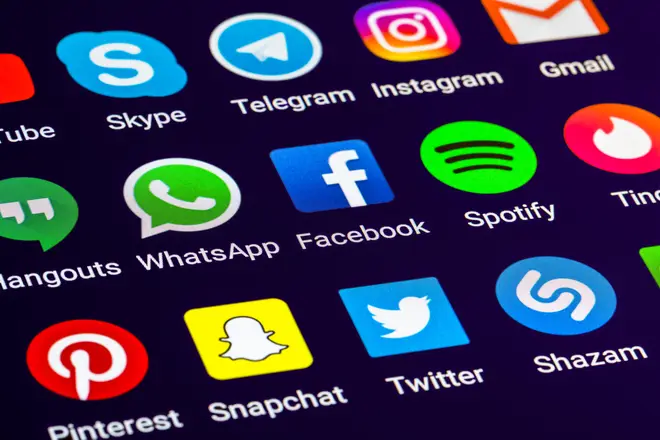
Simon Marks 3pm - 7pm
12 July 2021, 11:18

After England players received abuse online following their Euro 2020 loss against Italy, LBC's Technology Correspondent looks at how to tackle anonymous abuse.
I think I’ve finally worked out how it feels to be James O’Brien - against this backdrop of horrific racist abuse on social media, I reckon I’ve stumbled across a real, lasting solution - but the trouble is, I’ve got to take the rest of you on my journey.
We come back to this story every time there’s another disgusting outburst, but the reality is this kind of behaviour is there all the time - a filthy undercurrent of horrendous posts from anonymous individuals online.
Read more: FA 'appalled' as England stars suffer racist online abuse after Italy loss
My common response is that there are a variety of ways this could be dealt with - fining the social media companies, which would incentivise them to invest in technology and additional boots on the ground - thousands of humans around the globe employed to quickly remove the most pollutive and destructive of content, while machine learning and AI technology can be properly put into action to deal with it automatically.
Read more: Group of England fans breaks through barriers at Wembley stadium
We’ve seen tech companies around the world united to battle the scourge of child abuse content on the web, and they’ve made great steps to significantly reduce the distribution of such content.
Also, if the social boycotts like those undertaken by the world of football were prolonged and spread to other sports, particularly the NFL and NBA in the US - all the social platforms would increasingly wake up to the problem of abuse on their front lawn.
Read more: Prince William 'sickened' by racist abuse aimed at England players
It’s also time to look at prison time for those propagating racist comments and content online. I don’t care if people think we’re making an example of brainless racists who criticise our footballers by locking them up - social networks are commercial operations, and not protected spaces, so it’s time to throw the bloody book at them.
People need to realise there are consequences.
Now, what about if I told you we could solve all this pretty easily? It’s time for a national ID card - and we should make tech firms help pay for it.
The easiest way to stamp out the wilful misuse of the internet’s relative anonymity or freedom to set up multiple accounts if you get blocked would be to operate a national verified ID system that links your Internet usage to a real-world ID.
I know many LBC listeners (and readers) will absolutely despise my suggestion - but a national ID card solves a number of large issues related to our digital world in a single hit.
Want the freedom to watch (legal) porn online? Need a good way of keeping people off sites they shouldn’t be on, including under 13s on social networks?
The ID card solves those problems too. A centralised system that underpins our digital world.
Without the cloak of anonymity, the student in Slough or the estate agent in Cheadle won’t have the appetite to post racist bilge or abuse on social media, and if we all know who they really are, we can make decisions about whether we want anything to do with them, or not.
It’s easy to blame the social networks for the hate on their platforms and trust me, they deserve a lot of it, but perhaps it's time to look at the bigger picture.
Now we’ve done Brexit, let’s have a bigger tussle over a national ID card.
It’s time.